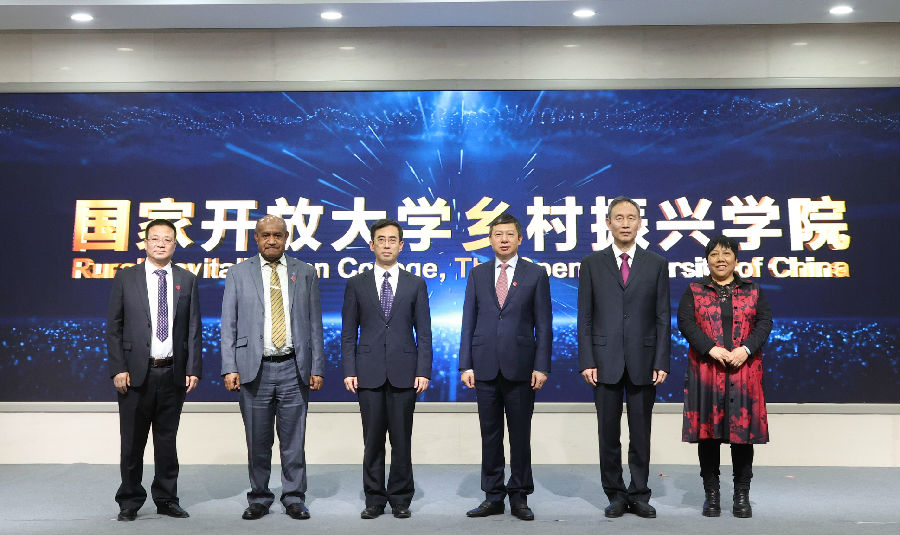 Recently, the “One College Student Per Village” programme implemented by the Open University of China (OUC) was awarded the 2020 UNESCO King Hamad Bin Isa Al-Khalifa Prize for the Use of Information and Communication Technologies in Education.
Recently, the “One College Student Per Village” programme implemented by the Open University of China (OUC) was awarded the 2020 UNESCO King Hamad Bin Isa Al-Khalifa Prize for the Use of Information and Communication Technologies in Education.
In order to further improve the programme’s talent development quality and better serve the rural revitalisation strategy, the OUC held the Internet Plus Talent Development Symposium on Rural Revitalisation on 7 April 2021. An inauguration ceremony for the OUC Rural Revitalisation College was also held during the symposium.
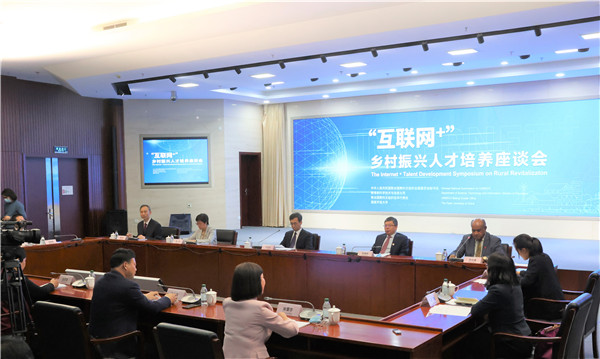
Secretary-general Qin Changwei from the National Commission of the People's Republic of China for UNESCO, vice director-general Shu Hua from the Department of Science, Technology and Informatisation of the Ministry of Education, Mr Robert Parua, an education programme specialist from the UNESCO Beijing Office, and Jing Degang, secretary of the Party Committee and president of the OUC, attended the symposium and made speeches. OUC vice president Ju Chuanjin presided over the symposium.
Representatives of relevant experts, teachers, and students also made speeches at the symposium. OUC vice president Yang Xiaotang, representatives of the relevant departments of the OUC headquarters, responsible people from some branches, representatives of internet enterprises, and media reporters participated in the symposium.
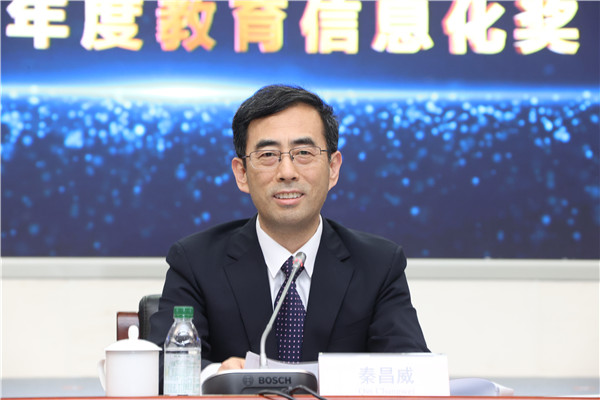
Qin Changwei announced that the OUC was awarded the 2020 UNESCO Prize for the Use of Information and Communication Technologies in Education and extended congratulations to the OUC on behalf of the National Commission of the People's Republic of China for UNESCO. He indicated that the “One College Student Per Village” programme was a typical case of promoting education innovation using AI technologies, embodying the needs to make China an education power and modernise education. The programme closely integrates education and poverty reduction and focuses on the key issue of poverty alleviation. It demonstrates the OUC’s educational achievements over the past few dozen years by adhering to the needs of the country and the people. It represents the use of information and communication technologies in education and poverty alleviation through education. It has contributed a Chinese approach to poverty eradication and fair and quality education as stipulated in the United Nations’ 2030 Sustainable Development Goals. It is his wish that through continuous efforts, the OUC will make greater contributions to consolidating China’s poverty alleviation results, to advancing the rural revitalisation strategy, and to strengthening and deepening cooperation with UNESCO.
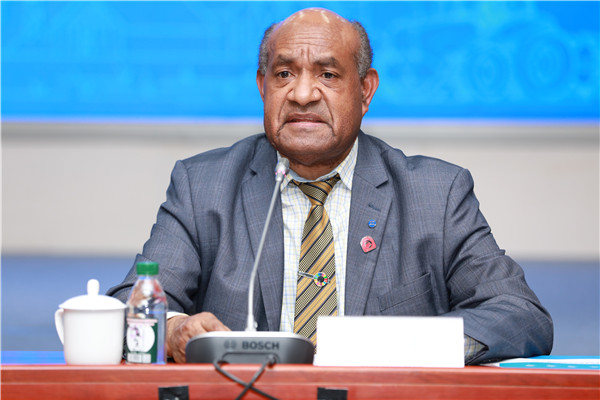
Mr Robert Parua sang the praises of the OUC’s successful practice of using AI technology to provide rural areas in China with quality distance education. He stated that the world is still facing a huge digital divide, and cooperation should continue and be deepened within the existing Memorandum of Understanding between the UNESCO and the OUC in order to promote the application of information and communication technologies, AI, MOOCs, OER, distance education and other platforms, to promote the development of high quality distance education, and to achieve the South-South Cooperation of open and distance education by making use of professional knowledge and experience.
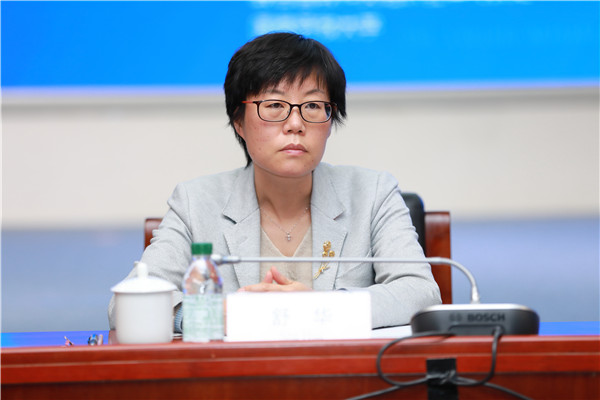
Shu Hua pointed out that the “One College Student Per Village” programme embodies the fairness, quality, and group advantages of digitalisation in education. She underlined that it is necessary to concentrate efforts in three aspects in terms of developing Internet Plus talent development for rural revitalisation. The first is to consolidate and adhere to promoting the profound integration of information technology with education and teaching, continue to improve teaching quality, and strengthen learning support. The second is to make efforts to expand, prioritising services oriented to both rural students and all the social public relevant to rural revitalisation and the improvement of both degree levels and skill trainings. The third is to make efforts in innovation, finding numerous advantageous majors geared towards breakthroughs in combination with the development needs of rural revitalisation, such as a focus on intelligent agriculture, intelligent medical treatment, and rural e-commerce. The aim of this is to train high-quality talents that can meet the development needs of modernising agriculture and rural areas, and to build a model of assisting rural revitalisation with digital education.
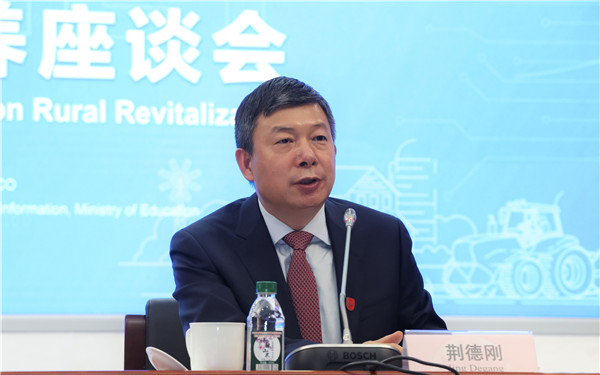
Jing Degang indicated that the “One College Student Per Village” programme has made achievements in the five aspects of focusing on poverty alleviation, developing high quality local rural talents, optimising grassroots teams of rural officials, leading farmers to achieve prosperity through startups, and improving the OUC’s social influence. The programme reflects the close integration of theory and practice, labour and education, leveraging the OUC’s own advantages with the real local economic and social situation, and poverty alleviation and ideological and political education. He underscored that it is necessary to pool all of our strengths in order to achieve the effective connection of poverty alleviation with rural revitalisation. The first is to establish the Rural Revitalisation College to realise the orderly connection of poverty alleviation and rural revitalisation; the second is to leverage the educational advantages of Internet Plus to accelerate the profound integration of modern information technology with education; the third is to focus on local needs to increase disciplines and majors relevant to rural revitalisation; and the fourth is to mobilise the OUC system to fight an overarching battle of rural revitalisation through education.
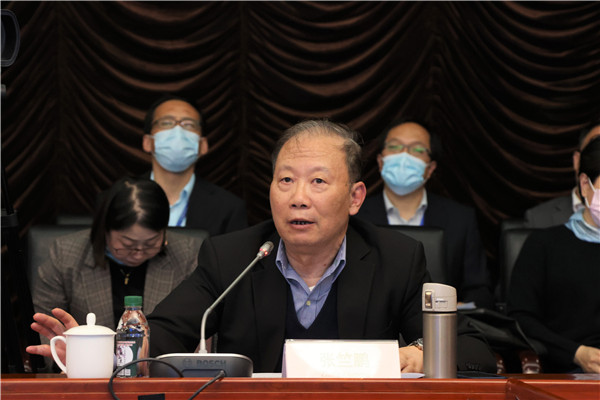
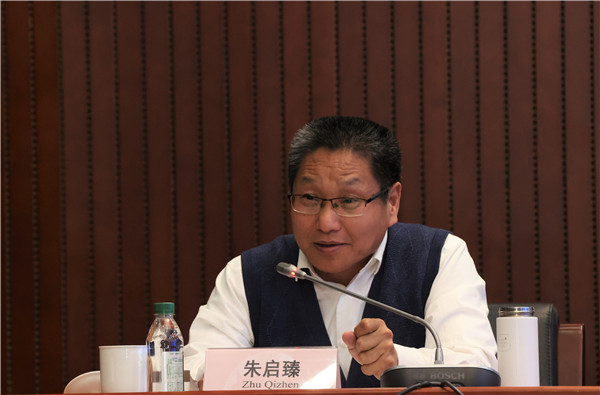
Professor Zhang Zhupeng from the National Institute of Education Sciences pointed out that in order to achieve the talent development of rural revitalisation, it is necessary to observe laws and policies, to use innovation and information and communication technologies to enhance the education system, to pay attention to the study of theory and practice, to establish and improve learning network and cooperation partnership, and to promote the recognition, accumulation, and transfer of learning results. Zhu Qizhen, director of the Institute of Problems Facing Agricultural Workers, China Agricultural University, stated that, in the future, it will be necessary to concentrate efforts on the development of talents for family farms and cooperatives. Meanwhile, it is absolutely necessary to foster advanced concepts in rural students through systematic education, such as the concepts of sustainable development, honesty, and cooperation.
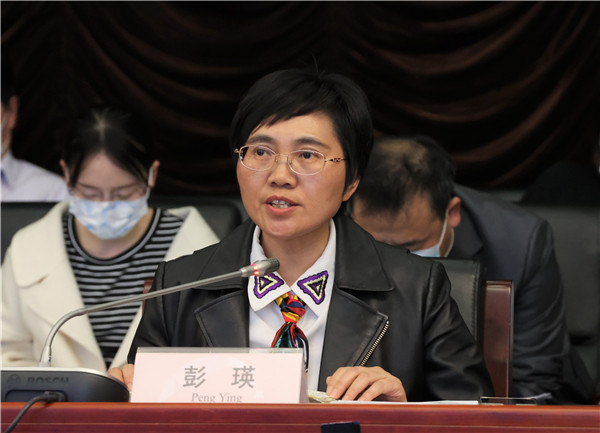
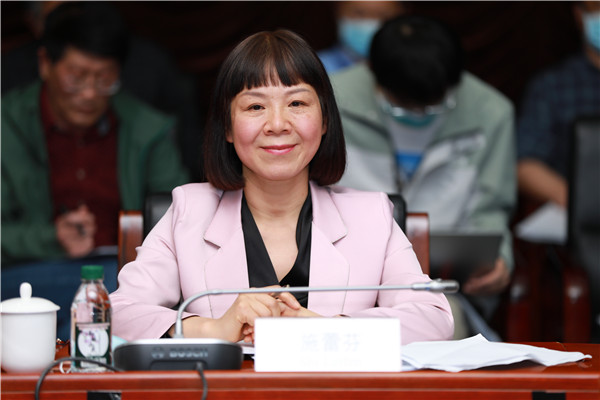
Peng Ying, a teacher from the Hunan Branch, made proposals from the three aspects of holding on to “agriculture,” leveraging the “network” to run education, and focusing on “combination.” Shi Leifen, a teacher from Lishui RTVU of the Zhejiang Branch, introduced Lishui RTVU’s achievements in assisting the talent development plan of rural revitalisation with Internet Plus in combination with her 28 years of experience as an RTVU tutor. She shared the successful teaching experiences she gained in the “811” mutual aid learning project, the propaganda team for rural college students, and the online Party branch for students.
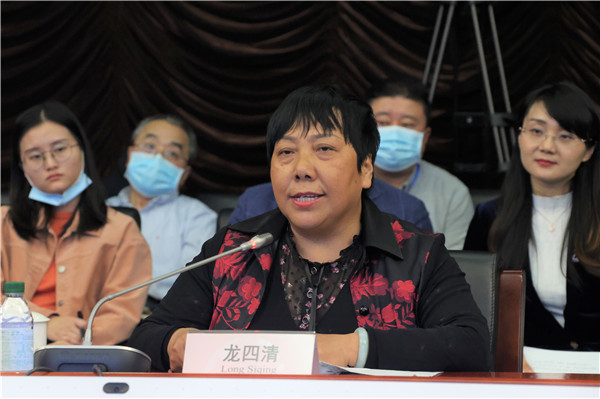
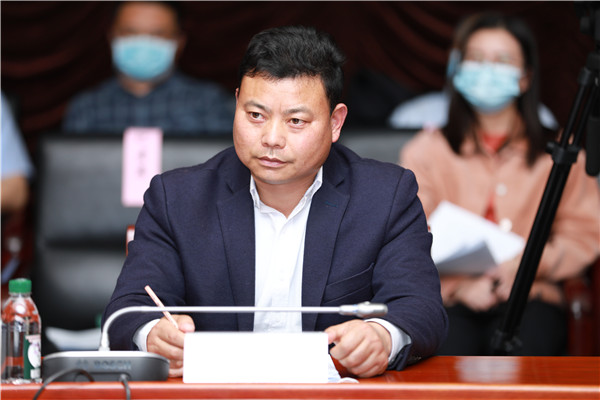
Long Siqing, a student who graduated from the 2014 class of rural administration, and Ma Jianfa, a student from the undergraduate programme of the 2020 class of gardening, spoke of the application of modern information technologies in rural education and teaching in combination with their own studies at the open university and their experience in leading villagers in shaking off poverty and achieving prosperity. They also talked about the real effect of the “One College Student Per Village” programme in local talent development for rural revitalisation.

At the symposium, Qin Changwei, Robert Parua, Jing Degang, Ju Chuanjin, Yang Xiaotang, and Long Siqing jointly unveiled the OUC Rural Revitalisation College.
Written by Yi Xin and photos by Zhang Jun and Weng Jianbin,OUC